Contact Me: howtopbestinfo@gmail.com
Contact Me: howtopbestinfo@gmail.com
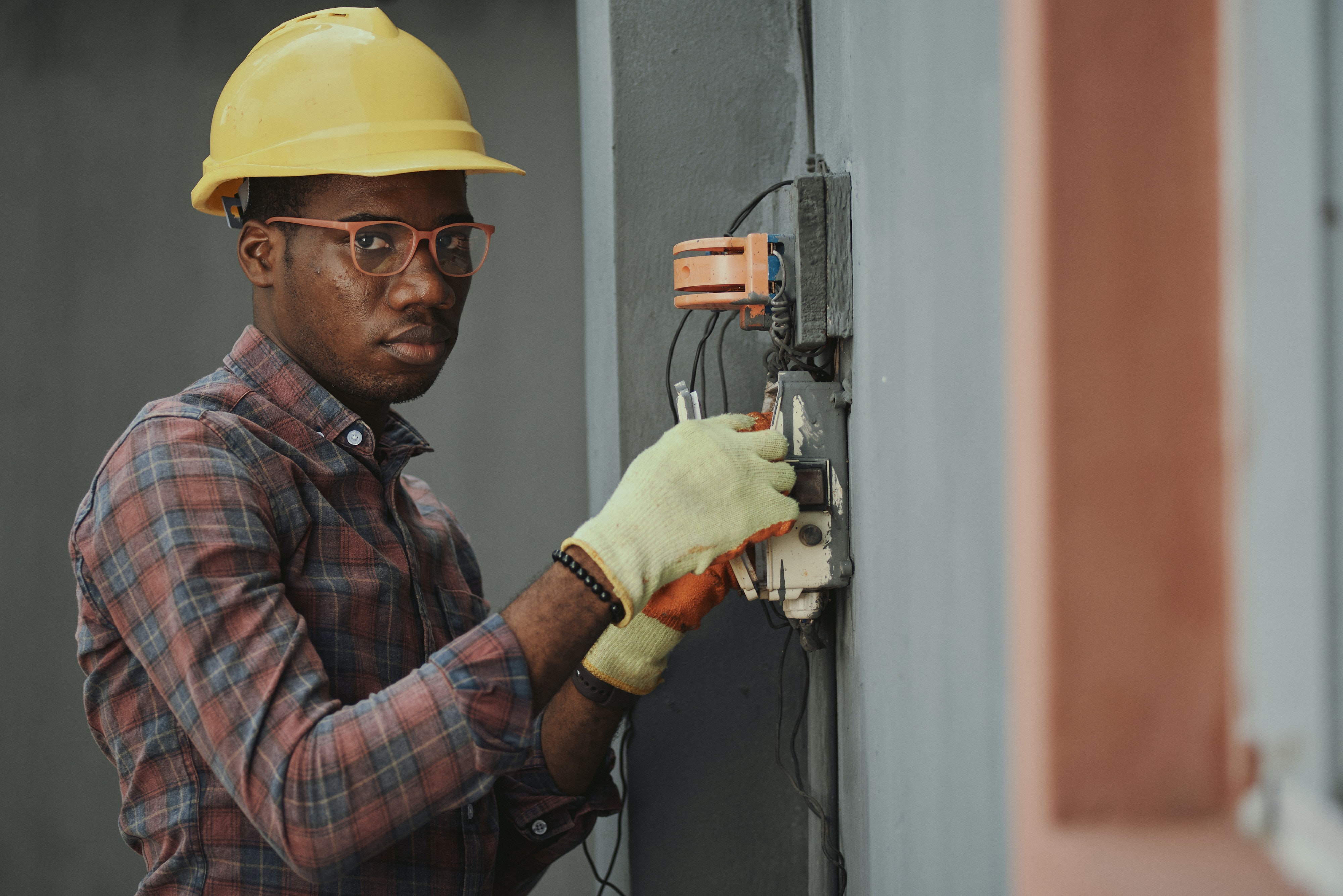
A non-contact voltage tester is a device used to detect the presence of an AC electric field in wiring, outlets and circuit breakers. This type of testing involves no physical contact with any electrical components or wires.
Non-contact voltage testers can be invaluable tools for anyone working on installations, repairs or maintenance involving electricity as they provide an indication that power is present without risking shock from direct contact with live connections.
Non-contact voltage testers are simple devices which use LEDs (light emitting diodes) powered by small batteries to indicate when there’s an electric field nearby; this makes them very easy and convenient to use even if you don't have experience handling electronics safely.
They come in both digital and analog models but either way will give you accurate readings up to 1000 volts so it's useful for residential applications such as checking wall sockets before plugging something into them as well commercial/industrial settings where higher voltages may need inspection due safety regulations..
The primary benefit of using a non-contact tester over other methods like multimeters -or just touching two bare ends together yourself! – Is that it eliminates the risk involved while still providing reliable results quickly & easily.
A non-contact voltage tester (NCVT) is a tool that helps to detect the presence of an electric current in wires and cables without making physical contact with them. It's used by professionals such as electricians, HVAC technicians, home inspectors and more for safety purposes when working around electricity or electrical equipment. Here are some tips on how to use it properly:
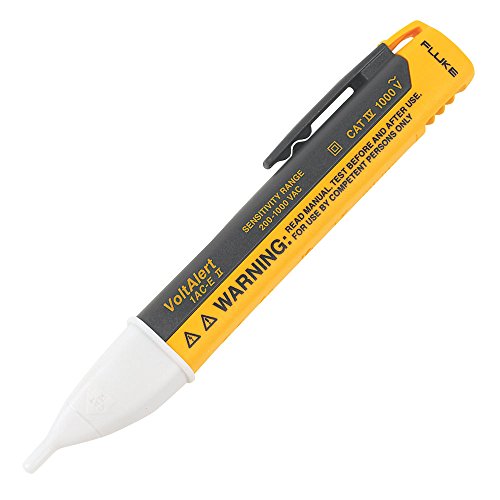
Best value overall, this is the greatest option for all buyers who want the best quality product.
Buy it on Amazon
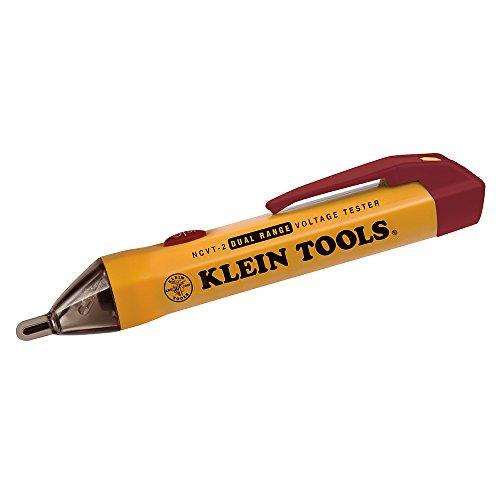
Also very good option for users who are serious about high standard and taste.
Buy it on Amazon
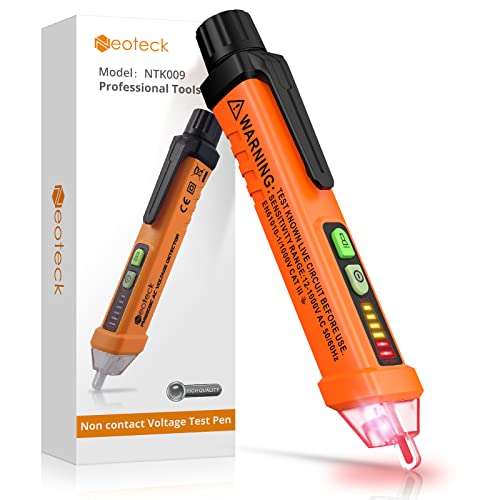
Strike a perfect balance between price and quality, this item is for people who want both.
Buy it on Amazon
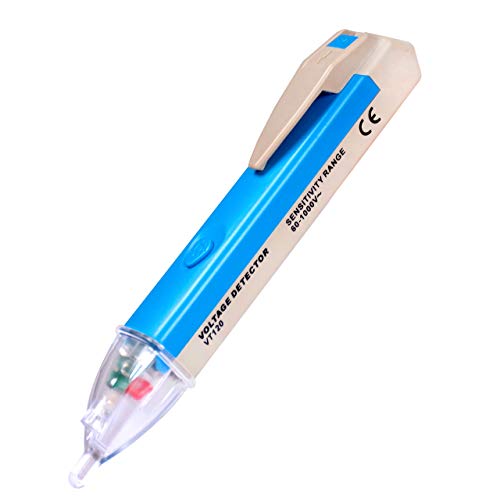
Perfect Alternative for products other than those mentioned above, give it a try!
Buy it on Amazon
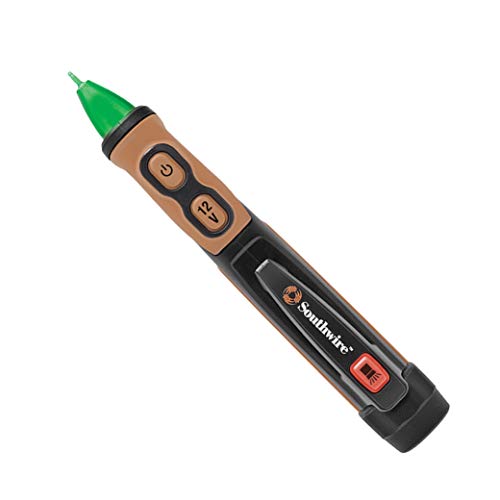
Affordable price and well accepted quality, great deal for who have a tighter budget.
Buy it on Amazon
The non-contact voltage tester, also known as the Voltage Detector Pen or Voltage Tester Stick, is a safety device designed to detect electric potential in wires and other electrical appliances. It was first developed by Canadian inventor George Janser in 1965 for use primarily on portable radio batteries.
Initially used only for professional testing purposes, it soon became popular with home improvement enthusiasts who wanted an easy way to check if their wiring installations were safe from dangerous voltages without having to touch anything live.
Since then its popularity has grown exponentially due mainly its simplicity of operation; no special skills are required beyond basic knowledge about electricity and how circuits work. The most common type consists of two metal prongs connected together through an insulated handle that detects AC current up 100VAC (or 250VDC).
When these prongs come into contact with a “live” wire they will beep or light up depending on model design – alerting users immediately whether there is any danger present before engaging further inspection/procedures such as changing out outlets etc..
This greatly reduces risk associated with working around active power sources while still providing reliable results quickly & easily when diagnosing faulty systems at hand.
To sum up, a non-contact voltage tester is an essential tool for any person performing electrical work. It can help you detect the presence of live wires without having to make contact with them and reduce the risk of electric shock or fire due to improper wiring. Additionally, it gives you peace of mind knowing that your home’s electrical system is safe from potential hazards as well as providing assurance when working on other people's homes or in commercial settings like shops and offices. With its convenience, accuracy and safety features, a non-contact voltage tester should be considered by anyone..


Etiam porta sem malesuada magna mollis euismod. Cras mattis consectetur purus sit amet fermentum. Aenean lacinia bibendum nulla sed consectetur.
2045-07-06 00:00:00.000000
2045-08-05 00:00:00.000000
2045-08-06 00:00:00.000000
2045-08-08 00:00:00.000000
2045-09-04 00:00:00.000000